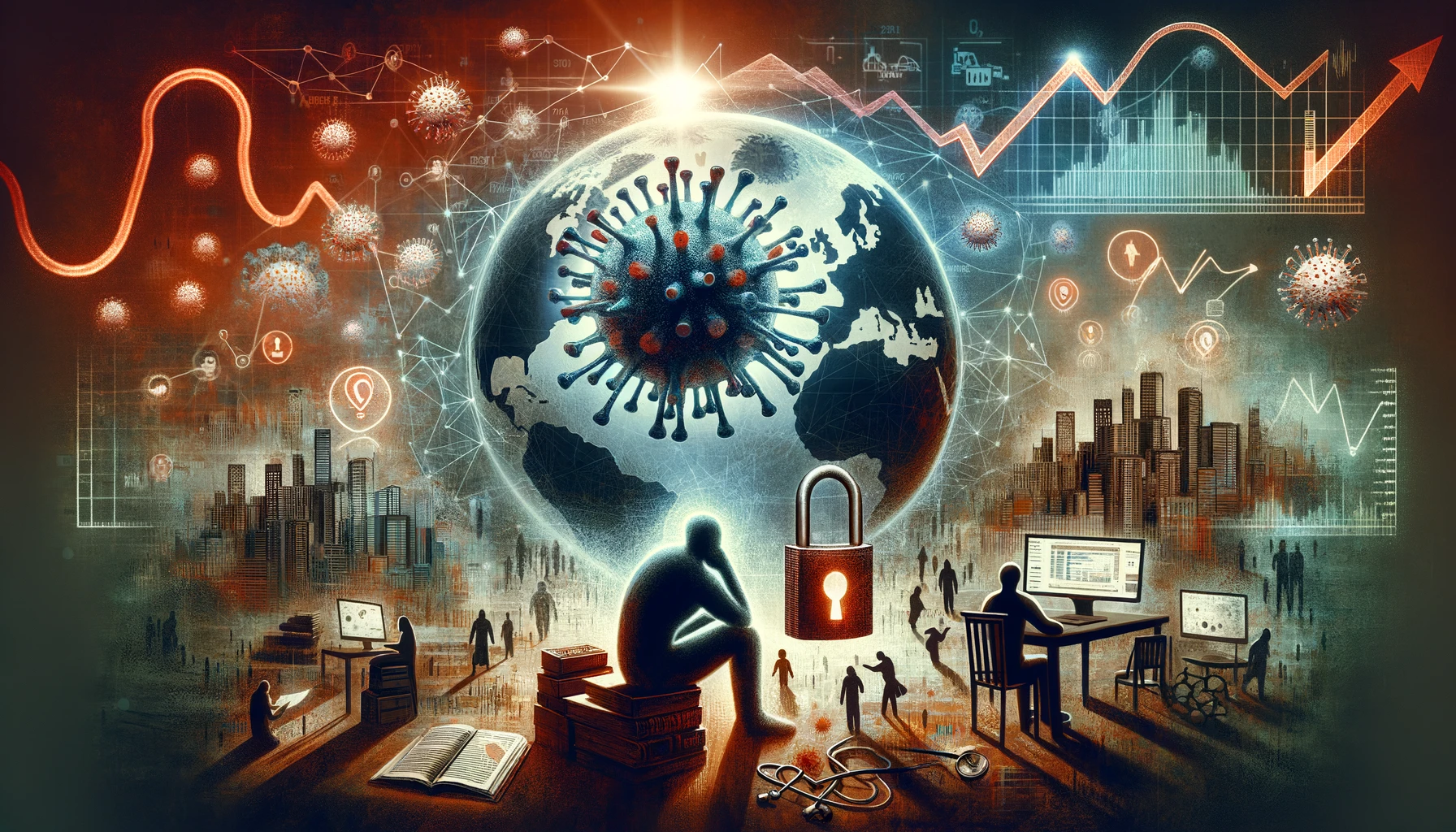The COVID-19 pandemic, which swept across the globe in early 2020, brought about unprecedented challenges that reshaped society in profound ways. The introduction of lockdowns and quarantines, essential for curbing the spread of the virus, had wide-reaching effects on various aspects of human life, from the economy and healthcare to education and mental health. This article explores the multifaceted impact of the COVID-19 lockdowns and quarantine measures on society during 2020.
Economic Impact
The economic consequences of the pandemic were immediate and severe. Businesses, especially small and medium enterprises, faced significant challenges, with many forced to shut down permanently. The travel and hospitality sectors were among the hardest hit due to travel restrictions and social distancing measures. Unemployment rates soared as companies laid off employees in response to diminished demand and operational restrictions. Governments worldwide launched stimulus packages to mitigate the economic fallout, but the road to recovery remained arduous for many.
Healthcare System Overload
Healthcare systems around the globe were overwhelmed by the sudden influx of COVID-19 patients. Hospitals ran out of beds, medical supplies, and personal protective equipment (PPE), placing immense pressure on healthcare workers. The focus on COVID-19 also disrupted regular healthcare services, including routine check-ups, elective surgeries, and treatment for other diseases, leading to a secondary health crisis.
Education Disruptions
The education sector faced significant disruptions due to the closure of schools and universities. The shift to online learning highlighted the digital divide, with students from disadvantaged backgrounds struggling to access the necessary technology and internet connectivity. The lack of face-to-face interaction and structured learning environments impacted students’ academic performance and social skills, raising concerns about long-term educational outcomes.
Mental Health Crisis
The isolation, uncertainty, and economic hardships brought on by the lockdowns led to a surge in mental health issues. Many people experienced increased levels of anxiety, depression, and loneliness. The restrictions on social gatherings and closure of public spaces limited coping mechanisms for stress, exacerbating mental health problems. Mental health services, already stretched thin before the pandemic, struggled to meet the growing demand for support.
Social and Cultural Changes
The pandemic and subsequent lockdowns accelerated changes in social behavior and cultural norms. Remote work became the norm for many, reshaping perceptions of work-life balance and prompting discussions about the future of office work. The crisis also spurred innovation in technology, with the rise of virtual meetings, online shopping, and digital health services. Community solidarity emerged as a positive outcome, with people coming together to support frontline workers and vulnerable populations.

The COVID-19 lockdowns and quarantine measures in 2020 had a profound impact on society, touching every aspect of life. While the challenges were significant, this period also demonstrated humanity’s resilience and capacity for adaptation. The pandemic underscored the importance of preparedness, flexibility, and community support in facing global crises. As the world continues to navigate the aftermath of COVID-19, the lessons learned during 2020 will undoubtedly influence future policies and societal norms.
